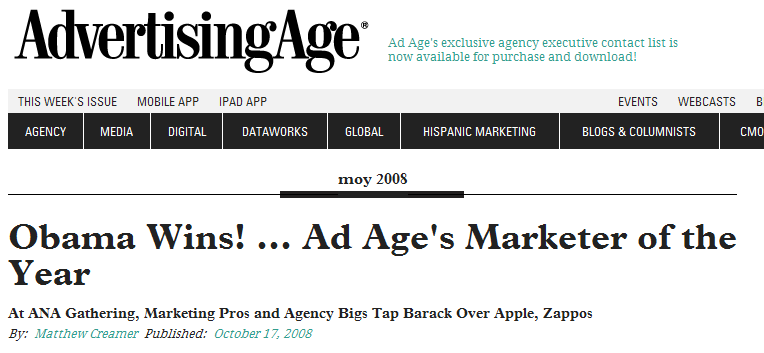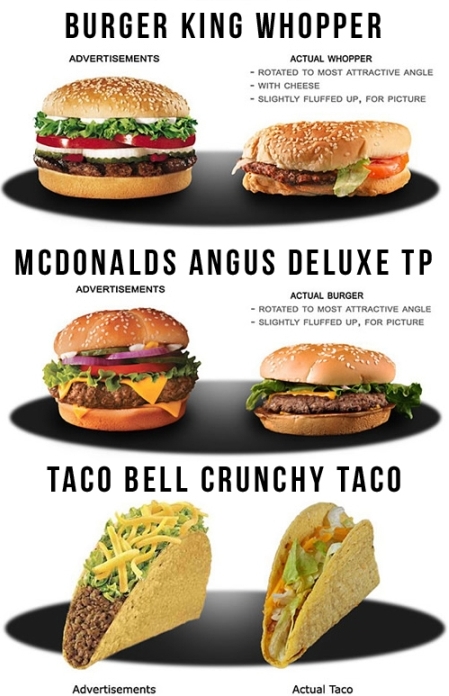
If there is one thing everyone ought to know about marketing, it must be that there’s a lot more to it than just the traditional selling/advertising. In fact, you can “change” the world! Well, maybe not you but the winner of the US 2008 Presidential Election certainly did.
 “Mr. Obama won the vote of hundreds of marketers, agency heads and marketing-services vendors gathered here at the Association of National Advertisers’ annual conference.”
“Mr. Obama won the vote of hundreds of marketers, agency heads and marketing-services vendors gathered here at the Association of National Advertisers’ annual conference.”
As you can see, aside from being worshiped as an idol by many of his supporters, Obama also served as an inspiration for marketers. His campaign is one of the largest and most expensive Public Relations(PR) campaign in history and it utilized the most advanced of techniques. For example, they adopted social media as one of its promotional platforms to engage its supporters, allowing them to share their spirit with the rest of the internet. This practice may sound very common and perhaps overused in today’s perspective, but that was back in ’08, a time when some people didn’t even know Facebook existed. As one marketing columnist puts it, “It’s the f**kin’ Web 2.0 thing”.
As a result, a politician of all people topped a long list of corporate elites. Obama came in first with 36.1% of the votes, beating Apple who were at 27.3% while companies like Nike, P&G and Coors didn’t even make the shortlist; McCain was far from the top with only 4.5% of the votes.
So is that how Obama became president; are modern democratic elections really just an elaborate nation wide PR campaign? I’ll leave that for you to figure. The facts remain facts; Obama went from a small time Senator from Illinois to the face of the United States in the span of months. It goes to prove that marketing is beyond just the realm of business. Marketing has very least influenced the fate of global politics, for better or for worse.
Reference:






